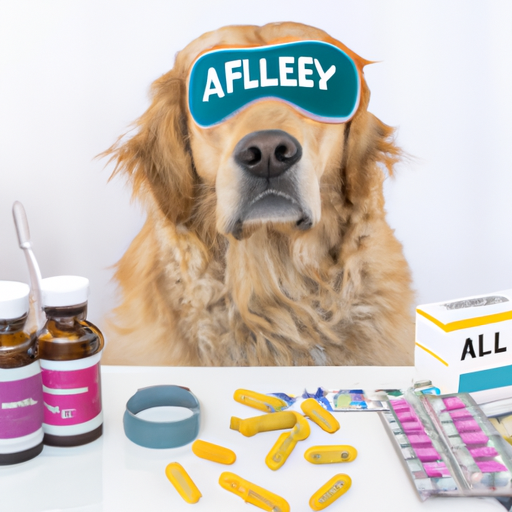In your role as a caregiver, the health of your furry friend is undeniably your top priority. When they’re in distress, your heart aches with them. So, if you’ve noticed your faithful companion scratching, sneezing, or showing signs of discomfort, they might be dealing with allergies. Let’s explore together what’s good for dogs with allergies.
1. Understanding Canine Allergies
Just like humans, your four-legged friend can also experience allergies. Their immune system may deem certain substances, known as allergens, as harmful – even though they may not be. This reaction triggers various symptoms that can cause discomfort to your pet.
Common allergens for dogs include:
- Dust mites
- Pollen
- Mold spores
- Certain foods
- Certain fabrics or materials
2. Spotting the Signs of Allergies in Dogs
You’ll need to be a bit of a detective to spot the signs of allergies. They can manifest in various ways, including:
- Skin Irritations: Red, inflamed or itchy skin, often leading to excessive scratching or licking.
- Respiratory Issues: Sneezing, coughing, or difficulty breathing.
- Digestive Problems: Vomiting and diarrhea, particularly if the allergy is food-related.
3. Effective Treatments for Dog Allergies
Once you’ve identified that your pet might have allergies, it’s time to consider treatment options. You should consult with a veterinarian for a diagnosis and treatment plan. Common treatments include:
- Medications: Such as antihistamines or steroids prescribed by your vet.
- Topical Treatments: Creams or shampoos that soothe the skin.
- Immunotherapy: A long-term solution that involves exposing your dog to small amounts of the allergen to build up their immune response.
4. Dietary Adjustments for Dogs with Allergies
Food allergies in dogs can be tricky to navigate. Yet, with patience and careful observation, you can identify and eliminate the offending ingredient from your dog’s diet.
| Foods to Include | Foods to Avoid |
|---|---|
| Single protein sources like fish or venison | Common allergens like beef, chicken, wheat, corn |
| Hypoallergenic dog food | Dairy products |
| Fresh fruits and vegetables | Artificial colors, flavors or preservatives |
5. Preventative Measures for Dog Allergies
Prevention, as they say, is better than cure. Here are a few tips to help prevent your dog from developing allergies:
- Regularly clean and vacuum your home to reduce allergens.
- Provide a balanced, nutritious diet to boost your dog’s immune system.
- Avoid exposing your dog to known allergens whenever possible.
Frequently Asked Questions
Q: Can dogs grow out of allergies?
A: While some dogs may see an improvement in their allergies as they age, others may not. Each dog is unique, and their allergies can change over time.
Q: Can dogs be allergic to humans?
A: Although rare, dogs can be allergic to human dander. If you suspect this, consult with your veterinarian.
Q: Can I give my dog human antihistamines for allergies?
A: While some human antihistamines can be used for dogs, it’s best to consult your vet before administering any medication.
Remember, you are your dog’s best advocate. Being informed and proactive in your approach to their allergies can greatly enhance their quality of life.



